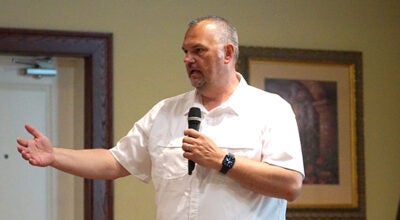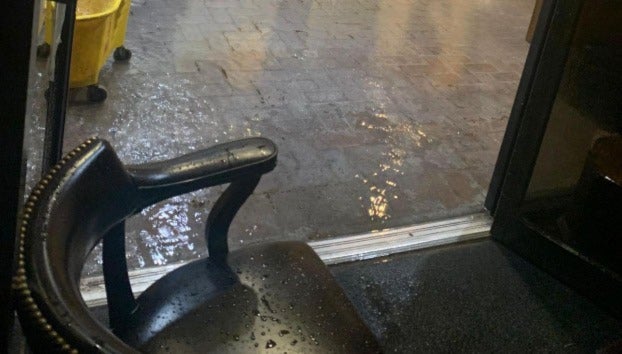Violations cited in Ferriday audit
Published 12:01 am Sunday, July 16, 2017
FERRIDAY — State auditors cited the Town of Ferriday for four violations recently, though one alderwoman told auditors she was disappointed that the board’s accusations against Mayor Sherrie Jacobs were dismissed.
The investigative audit, for years 2014 to 2016, found the town improperly paid salary supplements and incentive payments to employees, improperly paid grants and compliance clerk, failed to comply with the Local Government Budget Act and the board failed to fix salaries of municipal officers. The audit was conducted at the request of the Ferriday Board of Aldermen.
Alderwoman and Mayor Pro Tem Gloria Lloyd wrote to the legislative auditor that the board was “disappointed with the findings and lack thereof in this audit…”
Lloyd said the board has watched as black mayors in communities of Waterproof and St. Joseph, were “audited, targeted and prosecuted for some of the same allegations that you have so obviously dismissed against Mayor Jacobs,” who is white.
Some of Lloyd’s concerns include withdrawal of sewage funds for non sewage use, use of police department vehicles for personal use, no job descriptions for personal friends, termination of certified officers, using public funds to pay campaign debts, the mayor double signing checks, meeting minutes documentation and the purchase of a truck for sewage department without proper approval.
Auditors wrote in response that no evidence existed to substantiate several of the allegations against the management of the town. The auditors gave three examples.
For the sewage claim, the town maintains some funds within the sewer fund for debt service, but the remaining funds are not restricted and can be used to subsidize other town operations.
Louisiana code allows for the mayor to have the sole power and authority for singing checks, so no requirement exists to have a second person signing.
Auditors wrote Jacobs used a police department vehicle from January to February, but town records indicated she did not receive an expense allowance for use of a personal car during the two months.
From December 2014 to December 2016, the town improperly paid salary supplements or incentive payments totaling $40,550 to town employees and officials. The practice of bonuses have been consistently opined as unconstitutional by the state attorney general in Louisiana.
To be constitutional, the town must utilize salary increases for future work, not reward employees for past work.
Mayor Jacobs wrote the town would no longer utilize this practice.
From Oct. 21 to Nov. 30, former town clerk and now grants and compliance clerk Amanda Gagnard was improperly paid $2,095.
More than $1,300 was paid to Gagnard while she was off work for childbirth but not required to take leave and the remaining approximately $800 was from when Gagnard was paid at the incorrect rate as the grants and compliance clerk.
Jacobs wrote the town would seek reimbursement from Gagnard for accidental overpayment.
The audit cited several concerns with the government budget act, including the 2016-17 budget being adopted almost five months late in Nov. 15, 2016. Based on Louisiana code, the town should have only been able to expend 50 percent of the previous year’s budget to that date, which would have been approximately $383,201. The town expended $876,125 from July 1, 2016 to Nov. 14, 2016.
The budget also did not have a message including a financial plan and other additional information.
Jacobs wrote the board would adopt a budget by ordinance before July 1, and the 2017-18 $2,980,332-revenue budget was approved June 27.
Lloyd wrote it is the duty of the mayor to present the board with a budget that complies with provisions of the act and the duty of the board to pass that budget.
In failing to have a budget in place until Nov. 15, 2016 and not having an ordinance setting the salaries of municipal officers, the board may have violated state law. The auditors wrote without the budget or ordinance, it was unclear what salaries should be paid to municipal officers including the mayor,
Jacobs wrote aldermen would fix by ordinance the salaries of municipal officers, while Lloyd wrote it is the duty of the mayor to provide the board with recommendations of salaries for the officers he or she appoints.
Jacobs wrote to Legislative Auditor Daryl G. Purpera, “Thank you for sending such a competent team to help the Town of Ferriday align with the state laws. Their input was invaluable.”





